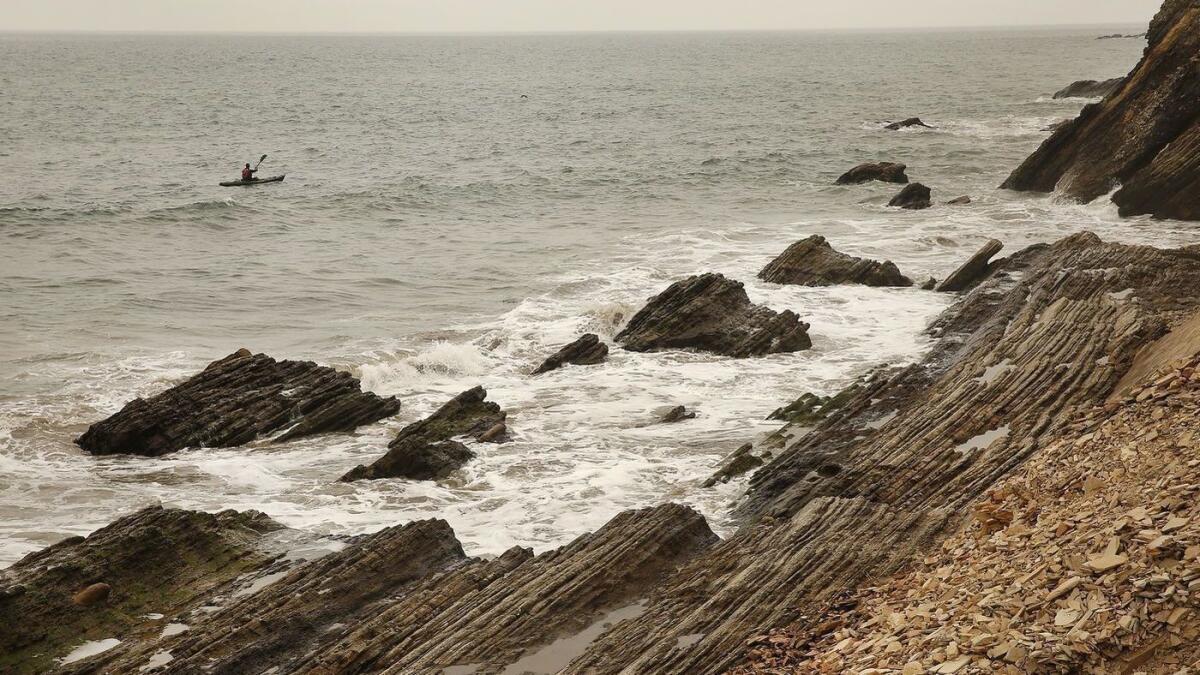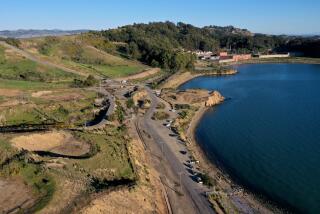Editorial: The state should not have settled for Hollister Ranch’s dismal offering

- Share via
In California, no one owns the beach. Public access to the sand and the ocean — natural treasures that belong to all of us and that may not be bought — is a fundamental principle of the law.
But in Santa Barbara County, an eight-and-a-half-mile stretch of pristine beach, punctuated by coves, is the subject of a decades-long battle. The landowners of Hollister Ranch clearly believe the beach is theirs, and have done everything in their power to keep others out.
In the annals of wars between owners of beachfront property and the public, the Hollister Ranch fight is as protracted as they come. On one side is the Hollister Ranch Owners Assn., which includes the owners of 136 parcels of property that sit on 14,500 acres of land, west of Gaviota State Park. On the other side is the state Coastal Commission.
Almost as disturbing as the settlement is the way it was reached.
Since the 1980s, Hollister Ranch owners have fought attempts by the state to set up any kind of public access through their property. And now, after years of legal battle, the Coastal Commission (and the Coastal Conservancy) have caved to their wealthy antagonists, reaching a pathetic settlement with Hollister Ranch homeowners that gives the state little more than what it had before this fight started: The ranch will run educational programs on the beach for selected visitors (like schoolchildren and disabled veterans). The state will have no control over access. Oh, and anyone can use a three-quarter-mile stretch of the beach — if they can get there from the ocean, because there will be no land access. That means a boat ride or paddleboard trip through treacherous waters.
Some deal the Commission got us.
The Coastal Commission has long maintained that Californians have a right to use a public easement granted in 1982 by the YMCA when that organization owned land that later became part of Hollister Ranch. In 2013, Hollister Ranch filed suit contending that the YMCA never had the right to grant access to the Coastal Commission in the first place.
It is that lawsuit that resulted in the current settlement. Almost as disturbing as the settlement is the way it was reached. The commissioners agreed to it in closed session months ago. It only became public thanks to a judge’s order, over the objections of the state attorney general’s office.
Since then, the Coastal Commission has received more than 1,500 emails, mostly protesting the settlement. A consortium of environmental groups has filed a lawsuit objecting to the settlement and seeking to intervene. The judge still must finalize the settlement. So this is not a done deal yet.
Enter the Fray: First takes on the news of the minute from L.A. Times Opinion »
It’s disturbing to watch public access being thwarted up and down the coast. In addition to the Hollister settlement, Martins Beach estate owner Vinod Khosla is challenging not just a right to public access across his property but the legal foundation of the Coastal Act itself. And in Santa Cruz, a community put up an imposing 9-foot gate at the entrance to a park that leads to Opal Cliffs Beach; the community charged an annual fee of $100 for a key to the public beach, although the fee-taking has been temporarily stopped.
At Hollister Ranch, the owners cast themselves as self-appointed protectors of the fragile coast. But while it is not unreasonable for the state to put some restrictions on access to ecologically important and fragile parts of the coast, that’s not for private property owners to decide or enforce. Bottom line, these are rapacious landowners stubborn and wealthy enough to figure out ways to keep the public off their beach.
What can the Commission do now? Some commissioners believe they didn’t have enough information on the Hollister Ranch case before they agreed to let the state’s attorneys settle the lawsuit. But it’s unclear if they can back out now. They should try. Or the judge could toss the settlement out. If any of this happens, Hollister Ranch will, no doubt, continue to fight to keep control over the beach. But, for the state and for the sake of the people of California, that is a fight worth continuing.
Follow the Opinion section on Twitter @latimesopinion or Facebook
More to Read
A cure for the common opinion
Get thought-provoking perspectives with our weekly newsletter.
You may occasionally receive promotional content from the Los Angeles Times.










